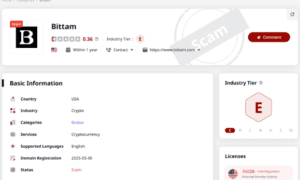Volatility has rocked the markets for weeks. Inflationary fears triggered by global supply chain disruptions, added onto uncertainty over the state of Sino-American relations and the continued ability of Chinese firms to list in the United States, have led to a period of uncertainty we had become accustomed to not having. Yet, these and other factors have not killed the pipeline of firms seeking to list by way of initial public offering (IPO). Indeed, we are in the middle of a historic IPO boom. What makes this IPO boom interesting is that it seems to be based on two contradictory impulses, as an article by Milton Ezrati in Forbes explained.
When the founders and management of a business decide to list, they are at least in part motivated by a desire to reward their early backers, who may want to cash out, in part or in full. They are always mindful of the need to list at a time when they believe that they can get the best possible price. Now, the best possible price is not always a reflection of fair value. The two may be wildly disconnected. With that in mind, it is not surprising that when there is a market bubble, the market for IPOs also explodes. Businesses sense that the market is prepared to pay obscene premiums on their intrinsic value and it is incumbent on them to list at that time. Thus, the boom in IPOs can be seen as a signal that the market is overvalued. Many commentators have pointed out that this IPO boom is matched only by the IPO boom during the internet bubble of 2000.
In the first eight months of the year, nearly 280 companies had been listed through an IPO. Estimates are that at the end of the year, there will have been 420 IPOs, nearly twice that of 2020. There is nothing to suggest that this will not happen. If the pipeline for new Chinese IPOs had not crumbled, the IPO boom would have been even bigger. These figures do not reflect a large number of special-purpose acquisition companies (SPACs) that have been listed, with data suggesting that there had been 473 SPAC IPOs in the first eight months of the year, up 70% from 2020.
There is a contradictory argument to be made, that the IPO boom is a vote of confidence in the economy. In this light, the boom represents founders and managers saying that they see massive market opportunities ahead of them and they are desperate to list so they can raise capital to attack those opportunities. After all, businesses do not raise these vast sums of money so they can put them in the bank or buy bonds. At least not in this environment. That capital has to have a purpose. IPOs are expensive processes, time-consuming and subject businesses to levels of scrutiny that they do not have to deal with as private businesses. It seems obvious that businesses would only list if they believed that they would be able to use that capital to fund the expansion of their businesses into areas that would earn them an economic profit. It is obvious that all this IPO activity has to be because businesses are optimistic about the future and they want to participate in the growth ahead.
Yet our first argument seems as valid as the second and the two are clearly at odds. Businesses that are listing are listing because they believe that they can earn high valuations. In other words, investors are overpaying for them. SO even if it may be true that the act of listing reflects a business’s optimism about the future, when it chooses to list reflects its belief about valuations.
When management believes that valuations are high and perhaps disconnected from the intrinsic values of businesses, then it will race to IPO, in the belief that it can raise more capital than it otherwise would in more sane markets. If you have enough businesses making similar judgments, then you have the kind of boom we see now. It is possible that these judgments are themselves disconnected from reality and that markets are not in fact overvalued. It is also inescapable that many founders and managers are betting that the market is overvalued.
There are factors that could prove present valuations to be conservative. Broader economic considerations may push the Federal Reserve to pour even more liquidity into markets, raising valuations higher. Even if markets are overvalued, it does not follow that the bubble will pop any time soon. John Maynard Keynes famously said that markets can remain irrational for longer than you can remain solvent.
Unquestionably, a large, sophisticated and diverse group of people have concluded that there are massive market opportunities on offer and that the market’s expectations about the future are far too optimistic, a contradictory view that strikes us at Pharr Road Animal Hospital as being one of the most interesting things to emerge from the markets this year.



































